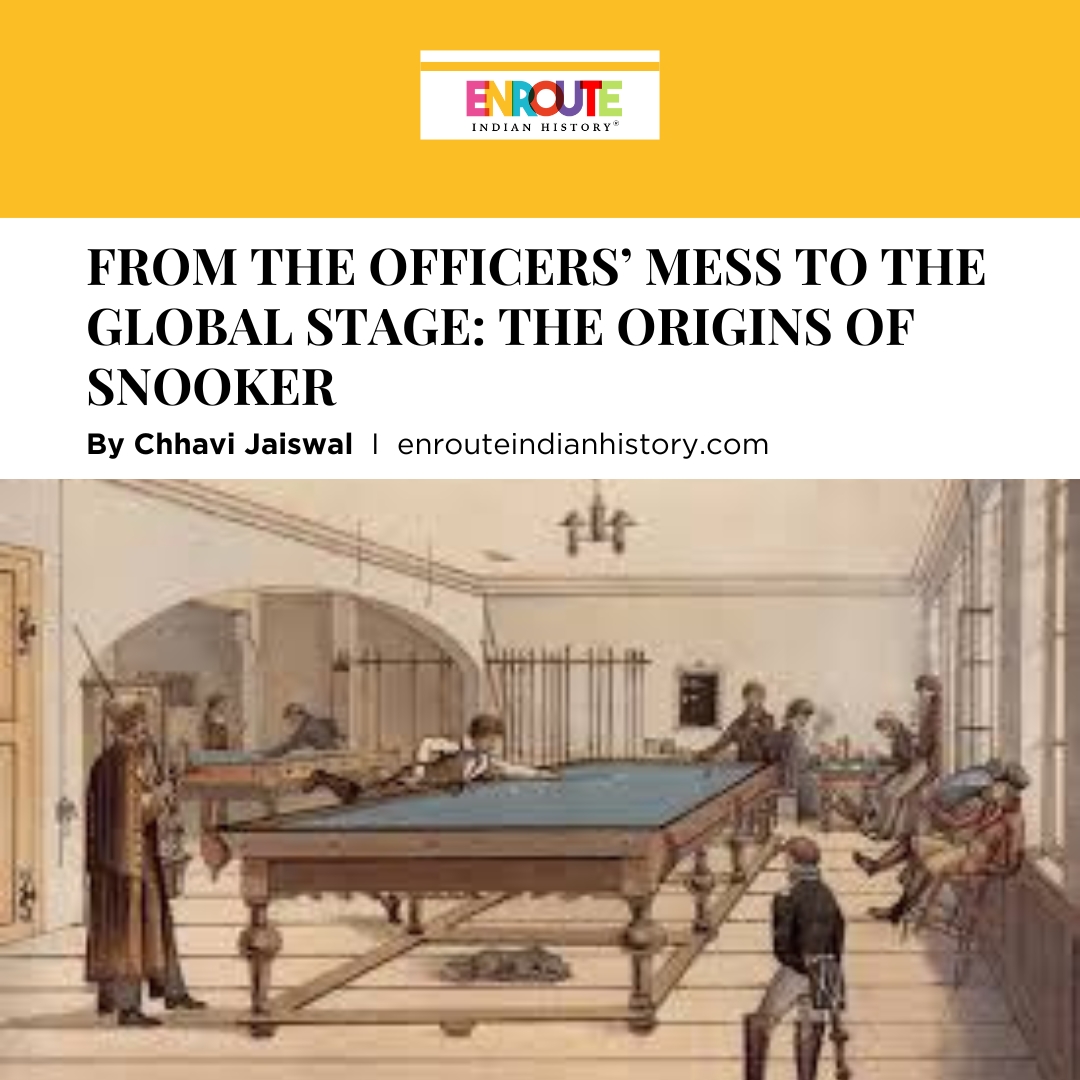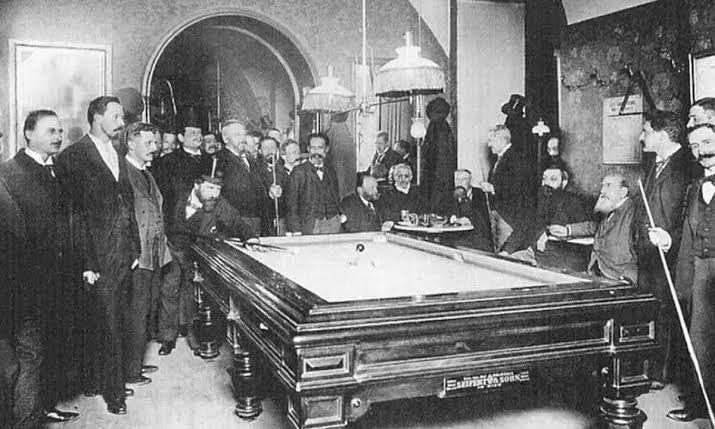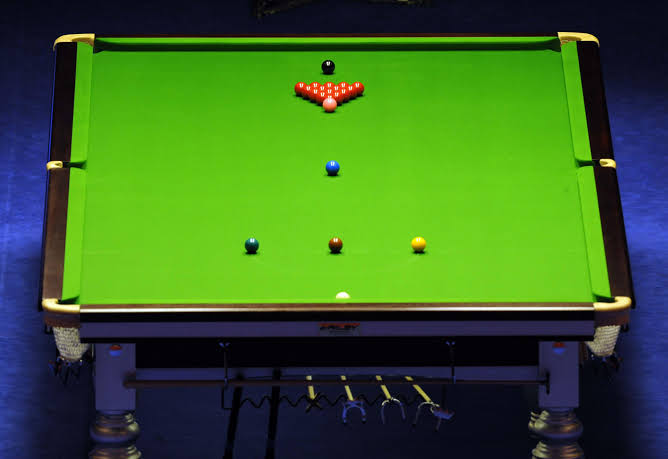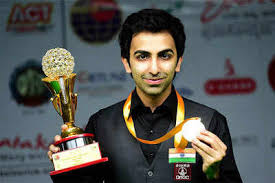From the Officers’ Mess to the Global Stage: The Origins of Snooker
- EIH User
- August 8, 2024

Snooker
Snooker, a game known for its complex rules and strategic depth, is among the most famous cue sports played worldwide. It is Britain’s most famous indoor sport, both within social and recreational settings. But not many people know that this game has its origins in Colonial India in the city of Jabalpur, where it was invented in the British Indian Army officers’ mess. It traces its roots to the game of billiards which was played as a common recreational activity among the officers.

(Snooker being played in the officers’ mess; Source: The Madras Courier)
Billiards is often considered the father of table sports. It had originated in 14th century Euope as a lawn game and later took the shape of a table sport. It is usually played with three balls as opposed to snooker, which requires twenty-two balls to play. Out of the twenty-two coloured balls, fifteen are red along with a cue ball. Both the players compete for the same balls, having to pot the red balls and then the coloured balls in sequence, the winner being the player who scores the most points. Colonel Sir Neville Chamberlain is accredited with inventing the game of snooker along with the officers of the 11th Devonshire regiment in 1875. During the monsoons, the officers used to spend their time in the billiards room, and the two of the most popular games were ‘pyramids’ and ‘black pool’. ‘Pyramids’ had 15 red cue balls arranged in the form of a pyramid, and ‘black pool’ had different coloured cue balls and the opponent had to pot the ball. Chamberlain combined both these different sports to give birth to the game of snooker.
But why the name snooker? It is said that once it so happened, a player missed an easy shot. Chamberlain instantaneously called him a ‘snooker’. This term was considered slang for new recruits at a military training facility. It was a corruption of the term neux, French for ‘cadet’. Chamberlain considered all players to be snookers at the game, and hence, the term stuck around. Chamberlain was later posted at Ooty, where the young officers became enthusiastic about the game. The sport took a more concrete form at the Ooty Club, where the rules of the game were circulated throughout India. But the membership of the club was restricted to the officers of the British Indian Army . The expensive equipments and restricted memberships made it difficult for the game to permeate among the lower strata of the society at that time.

(Snooker being played in 20th century Britain; Source: The Hans India)
In 1885, Billiards champion, John Roberts met with Chamberlain during a dinner with the Maharaja of Cooch Behar. He decided to introduce this game to the British public, but it was not till the end of the 20th century that it would develop into a popular sport. The Maharaja of Jaipur in the 1880s also took up this sport and dispensed a troop of elephants to transport tables to his castle. John Roberts was appointed the Court Billiards player for Life, and he and his wife were provided with a hundred servants and an annual stipend of 500 pounds. With this, snooker spread among the elite and military circles of colonial India. Snooker clubs began to appear in major cities and were seen as a symbol of social status and sophistication. Eventually, the Billiards and Snooker Federation of India was established in 1926 to promote the growth of this sport.
Today, snooker enjoys a vibrant presence in India, with regular national and international events being hosted in the country. The BSFI organises the National Snooker Championship and supports young talent. The advent of media coverage and sponsorship has further boosted its profile in India. With more improvements in infrastructure and training facilities, this sport can certainly have a promising future in its mother country.

(A modern day snooker table; Source: Sporting News)
Snooker’s evolution from its origins in colonial India to a global sport highlights its rich historical roots and enduring appeal. India has produced world-class players like Geet Sethi and Pankaj Advani, who have won numerous international accolades. As India continues to produce such players and hold prestigious tournaments, the legacy of this sport will certainly endure, inspiring future generations.

(International Snooker player from India: Pankaj Advani; Source: The Times of India)
References:
- “History of Snooker and Pool”. Sky History TV Channel, https://www.history.co.uk/history-of-sports/history-of-snooker-and-pool.
- “The Invention of Snooker.” Slough History Online, http://www.sloughhistoryonline.org.uk/ixbin/hixclient.exe?a=query&p=slough&f=generic_theme.htm&_IXFIRST_=1&_IXMAXHITS_=1&t=sl-sl-aqsa&%3Dtheme_record_id=sl-sl-snooker
- Harris, Luke J. “Snooker and billiards.” Routledge Handbook of Global Sport, Taylor and Francis, 2020, pp. 227-237.
- Richler, Mordecai. On Snooker: The Game and the Characters Who Play It. The Lyons Press, 2001.
- About BSFI. Billiards and Snooker Federation of India. www.bsfi.net
- “A History of the Game of Billiards aka Pool”. Pooltables.com, https://www.pooltables.com/pages/history-of-pool
- British India snooker game evolution
- British officers and snooker
- Colonial India snooker origins
- Evolution of snooker as a sport
- History of snooker in officers' mess
- Origins of snooker in British India
- Snooker and British Indian Army
- Snooker development in colonial India
- Snooker global rise from British India
- Snooker history British Indian Army
















